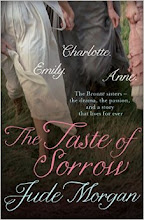 "Lay down your Swinburne and attend!" So Brooke begins a letter to Noel Olivier, youngest daughter of the Fabian reformer Sydney Olivier and cousin of Sir Laurence. It is 1909: Brooke is about to take his Tripos at the end of an academically average undergraduate career, Noel is sixteen and frequently more mature about the nature of her relationship with the dashing poet than he is, despite his being several years older. Theirs will be a tempestuous yet unconsummated relationship, at times ferocious and possessive, at others, barely existent. It is traced through its ups, downs and plateaus in Pippa Harris's Song of Love: The Letters of Rupert Brooke and Noel Olivier (OP), and is a fascinating insight into one of English literature's most charismatic poets.
"Lay down your Swinburne and attend!" So Brooke begins a letter to Noel Olivier, youngest daughter of the Fabian reformer Sydney Olivier and cousin of Sir Laurence. It is 1909: Brooke is about to take his Tripos at the end of an academically average undergraduate career, Noel is sixteen and frequently more mature about the nature of her relationship with the dashing poet than he is, despite his being several years older. Theirs will be a tempestuous yet unconsummated relationship, at times ferocious and possessive, at others, barely existent. It is traced through its ups, downs and plateaus in Pippa Harris's Song of Love: The Letters of Rupert Brooke and Noel Olivier (OP), and is a fascinating insight into one of English literature's most charismatic poets.To look at Brooke with a modern understanding of psychology, then in its infancy, reveals a deeply obsessive character, sexually frustrated and at times almost bi-polar in his mood swings, which ranged from egotistical and manipulative ranting to deep, possibly even suicidal, depression and a crippling lack of confidence. In many ways, he comes across as a young man out of his time, born too early; the personal and literary freedoms he craved are simply not those of Edwardian society. Take, for example, his poem The Voice; this is an accomplished piece of romantic pastoral, which, re-examined in light of the ending, becomes biting satire. The poem very much sums up Brooke's complicated attitude to his art - poetry was, to him, the highest pinnacle, the greatest form of expression, the weight of its history both inspiring and oppressing... and yet at the same time the canon is something to played with, turned on its head, even mocked; see also The Great Lover.
Love, indeed, seems to have presented him with a similar dichotomy; he both yearned for it and despised it. When he wasn't in love, he forced himself to be so, playing the courtly lover much as Romeo does before he meets Juliet. Yet when real love (hetero- or homosexual), or at least its potential, reared its head, he ran a mile!
What his letters show, however, is a complex boy who grows into an even more complex man. He is intellectual, yes, but also surreal, witty, even silly:
"I am writing a Book. There will only be one copy. It will be inscribed in crimson ink on green paper. It will consist of thirteen small poems; each as beautiful, and as meaningless as a rose-petal, or a dew-drop. (These are not yet written, however.) When the book is prepared, I shall read it once a day for seven days. Then I shall burn the book: and die."
Surely, had he ever realised it, a contender for the Turner Prize?
His legendary "dateless" beauty ("he was tall and well built, loosely put together, with a careless animal grace..." "eyes not grey or bluish white, but of living blue, really like the sky..." "the whole effect was almost ludicrously beautiful.") is set off by the intense passion with which he sometimes imbued his letters: "You go burning through every vein and inch of me till I'm all [you]", he wrote to Ka Cox, with whom he lost his heterosexual virginity.
But he was also, as Virginia Woolf was often quick to point out, cruel. He knew how and when to hurt his friends, and did so with calculated precision. His letters demonstrate occasional remorse, but it was often a long time coming. Indeed, due to his early death, in some cases apologies never came.
And then, we can - and better men than I have spent much time doing so - deliberate on what he would have become had he lived longer. He is known in many circles simply as one of the 'war poets', and criticised just as often for the heroic tone those few war sonnets take, but one must remember that in 1915, when Brooke died, even Sassoon's poems were patriotic, and Brooke, though on his way to Gallipolli, never saw frontline action. I have read speculations that he might have made Prime Minister - he moved in the right circles (friends included Churchill and Violet Asquith, the latter, naturally, being in love with him) and was always vaguely interested in politics. But he was a strange mix, as many were at that time, of latent racism and outright sexism (he hated suffragettes), combined with liberal Fabian ideals. (Indeed, he is indirectly responsible for the Arts Council - his friend, the great economist Maynard Keynes, proposed a fund for artists based on an appeal made by Brooke). Brooke was in fact so utterly contrary in virtually every aspect of his life that it is hard to say whether he would have, had he lived into the 1930s, sided with Hitler or Stalin.
But contradiction is perhaps what lies at the heart of our infatuation with so many artists, writers and musicians. After all, isn't complexity the essence of creativity?
(All references from Song of Love by Pippa Harris, Friends and Apostles: The Correspondence of Rupert Brooke and James Strachey by Keith Hale, and Rupert Brooke: Life, Death and Myth by Nigel Jones)


No comments:
Post a Comment